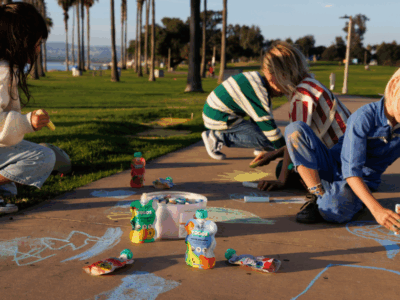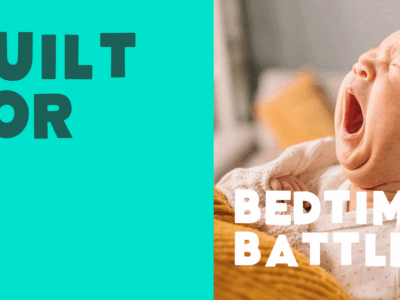Over the last three years, the most common question I’ve received personally and professionally is about the safety and effectiveness of CBD. Is it a cure for my pain? What about anxiety? Is it safe to help my kids sleep? Can I use it while I’m pregnant or nursing? Before we dive into these questions, it’s important to understand what exactly CBD is and the research behind its use.
Is there a difference between hemp, marijuana, CBD and THC?
Let’s break it down. Hemp and marijuana are both plants while CBD and THC are both compounds found in those plants. Hemp is typically very low in THC and high in CBD, while marijuana is the opposite, high in THC and low in CBD.
CBD and THC are called phytocannabinoids (phyto means plant) and while they can be found in the hemp and marijuana plants, they are also found in other plants too including maca, kava, echinacea, black pepper, and even cacao. Maybe that is why so many people turn to chocolate when stressed!
CBD and THC do different things in the body, but the reason why these two—and some of the other phytocannabinoids like CBN—get so much attention is because of how they interact with our body through something called the Endocannabinoid System.
The Endocannabinoid System is hardwired into every human being and is formed in gestation in the womb just like the other systems in the body like our cardiovascular or respiratory systems. Doctors aren’t learning about this system in medical school, but we now know that the Endocannabinoid System has more receptors in the neurological system than any other neurotransmitter, even more than dopamine and serotonin!
The Endocannabinoid System includes receptors in every organ system that interact with CBD and THC when taken orally or topically. To make things even more fun, our cells also make similar compounds internally within the cellular membrane called….endocannabinoids (2-AG and Anandamide are the two most studied).
Summing it up, we have receptors basically everywhere in the body that interact with cannabinoids. Cannabinoids are made in our body, but can also be found in nature. Research is only beginning to show us why this system is so important.
What does the research say about CBD?
While there is plenty of research, we have a lot more to learn. Here is a link to one of my favorite sites, GreenMedInfo.com, that takes clinical research from places like PubMed.gov and organizes them into topics, metastudies and articles that expand on the premise of the study. Currently, GreenMedInfo has research on the impact of cannabidiol on 295 different diseases including epilepsy, inflammation, anxiety, seizures, neurological disorders like Parkinson’s and much more.
The results of studies so far point to the Endocannabinoid System as being responsible for adaptation to stress. Stress can be split into mental, chemical and physical stress, but our Endocannabinoid System doesn’t necessarily see them differently. As our body feels and responds to stress, our Endocannabinoid System will increase endocannabinoid production to help restore balance.
But doing more research has been a bit of a problem. Cannabis and hemp were a huge part of the economy and healthcare system in the United States until the Marijuana Tax Act changed how those plants could be used in 1937 by labeling it a schedule 1 narcotic.
The FDA has only recently started to open the conversation and access about these plants, while previously grouping them alongside LSD and Ecstasy. This means they were blocked or had extremely limited availability towards scientific research.
Are studies that prove effectiveness the only thing that matters?
Yes and no. FDA approved research is critical for understanding both the short term and long-term effects. This helps us understand questions like:
- What can CBD really help with?
- What is the ideal dose for CBD?
- Is there an age that is too early? Too old?
- Can the Endocannabinoid System become deficient? Toxic?
But we cannot discount anecdotal evidence. While CBD impacts everyone differently, there are millions of people for whom CBD has had a positive impact on their lives and that has to stand for something.
Can I safely use CBD while pregnant? What about CBD that has THC?
It’s up to you to make that decision. I am not your doctor and do not know your specific health history, so I can’t make that decision or recommendation for you.
However, your body does not stop producing endocannabinoids while you’re pregnant. It might even produce more during pregnancy since studies have shown links to our body’s Endocannabinoid System and stress, inflammation, immunity, endorphins and more.
Studies have even shown that the Endocannabinoid System is found as early 14 weeks gestation in the developing child. Other studies say that an endocannabinoid 2-AG is found in all animal milk, including human breast milk and it is responsible for the motivation to latch and nurse. While we are not 100% clear on how all this works, we do know that the Endocannabinoid System plays an ever-growing part in our body’s ability to adapt to stress through our entire life.
Is there any place for CBD with post-labor recovery?
Typically, women are instructed to use synthetic medications to decrease the physical pain and inflammation after pregnancy.
On top of that, the stress of being a new parent coupled with the loss of sleep can wreak havoc on mental health and can lead to a common diagnosis of postpartum depression. More than ever, people are looking for something natural to help these problems.
While there are plenty of mothers that say CBD helps them navigate these symptoms, there unfortunately is not research to give us a definitive answer.
Is CBD the cure to physical pain and mental stress? Absolutely not. From the quality of your food, exposure to toxicity, restorative sleep, activity levels and more, there are so many avenues to optimize your mental and physical health post-labor. It is up to you to decide if CBD plays a part in your health goals for the recovery process.
Is CBD right for me?
There isn’t an exercise program, diet, medication, or bedtime routine that works for us all. We are all different. Everything from our genes to our emotional state and past experiences play a role in what our body’s need at any given time.
As individuals, we are in charge of our well-being and how we make decisions when it comes to our health. While this can sometimes feel a bit overwhelming, it can also be incredibly liberating.
For me, the most fun part of working with patients is being creative. To some practitioners this can be a burden, but it is extremely important to me to share a “wellness toolbox,” or a wide spectrum of options with my patients to help them on their journey towards optimal health regardless of what symptom they’ve been labeled with.
CBD is not the cure for whatever ailment or condition you’re looking to solve. But, from what I’ve learned about the plant from both clinical research and anecdotal evidence from all over the world, CBD certainly deserves a spot in your “natural medicine cabinet.” How and when you use it is up to your preference.
*Note, this information is not to be used as medical advice. Please consult your physician if you have any questions about CBD usage.



